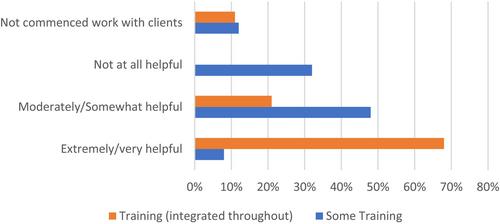Religion and spirituality in therapeutic training in the UK: A survey of current and recent trainees
Abstract
Background
Research indicates counsellors and psychotherapists receive little training around working with clients who present with religious or spiritual issues and feel unprepared to work with these clients.
Aims
This paper presents part of the findings from an online survey that aimed to explore how trainee and newly qualified counsellors and psychotherapists, who identify as religious or spiritual, experienced undertaking therapeutic training in the UK.
Method
This online survey collected data on how much training participants received on their courses in religion/spirituality, how this training was delivered, how satisfied they were with their training, their knowledge base and skills around religion/spirituality, and what areas relating to religion/spirituality participants would like to see incorporated into therapeutic training. The survey data were analysed using descriptive statistics and thematic analysis.
Results
Over half of the participants received no training in this area, with a further third receiving minimal input. Participants reported low satisfaction rates with training received unless integrated throughout their course and identified specific knowledge gaps around religious/spiritual literacy, therapeutic skills, and awareness of religion and mental health research. Participants wanted more input on religion/spirituality in the training syllabus to increase their knowledge base and therapeutic competences.
Conclusion
This research employed a non-randomised sample, which limits the generalisability of these findings to a wider training population. Survey participants were also a highly religious/spiritual group, with 87% indicating they engaged in weekly religious/spiritual practices. Participants identified as Christian and White, and reported receiving person-centred or integrative training.


 求助内容:
求助内容: 应助结果提醒方式:
应助结果提醒方式:


